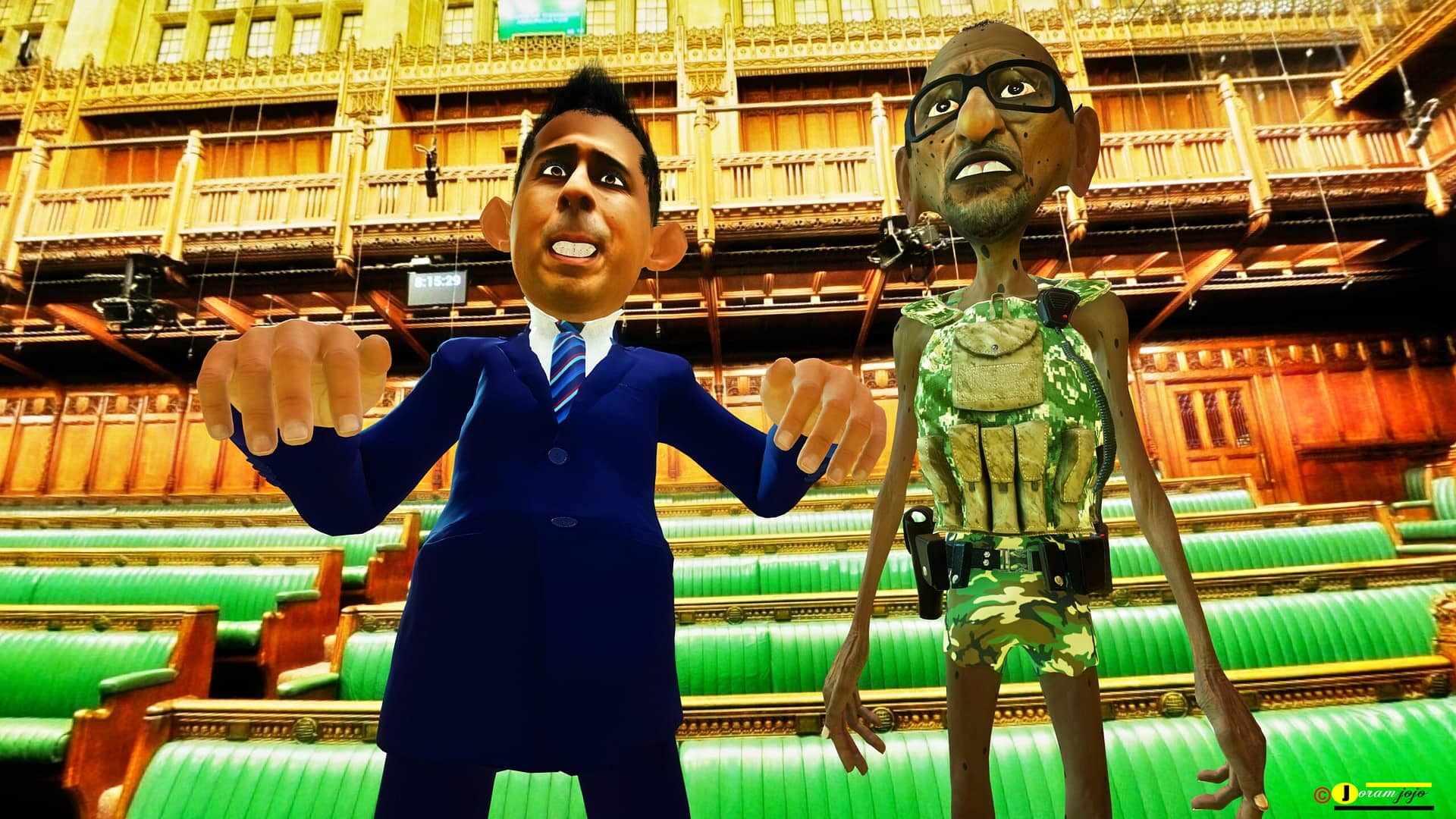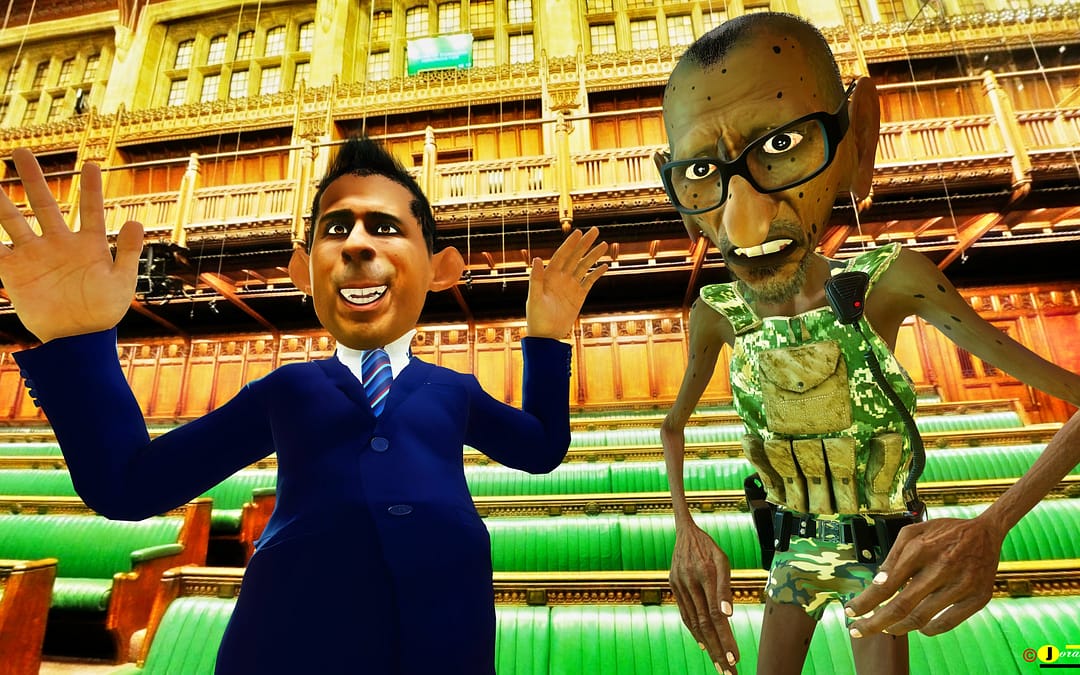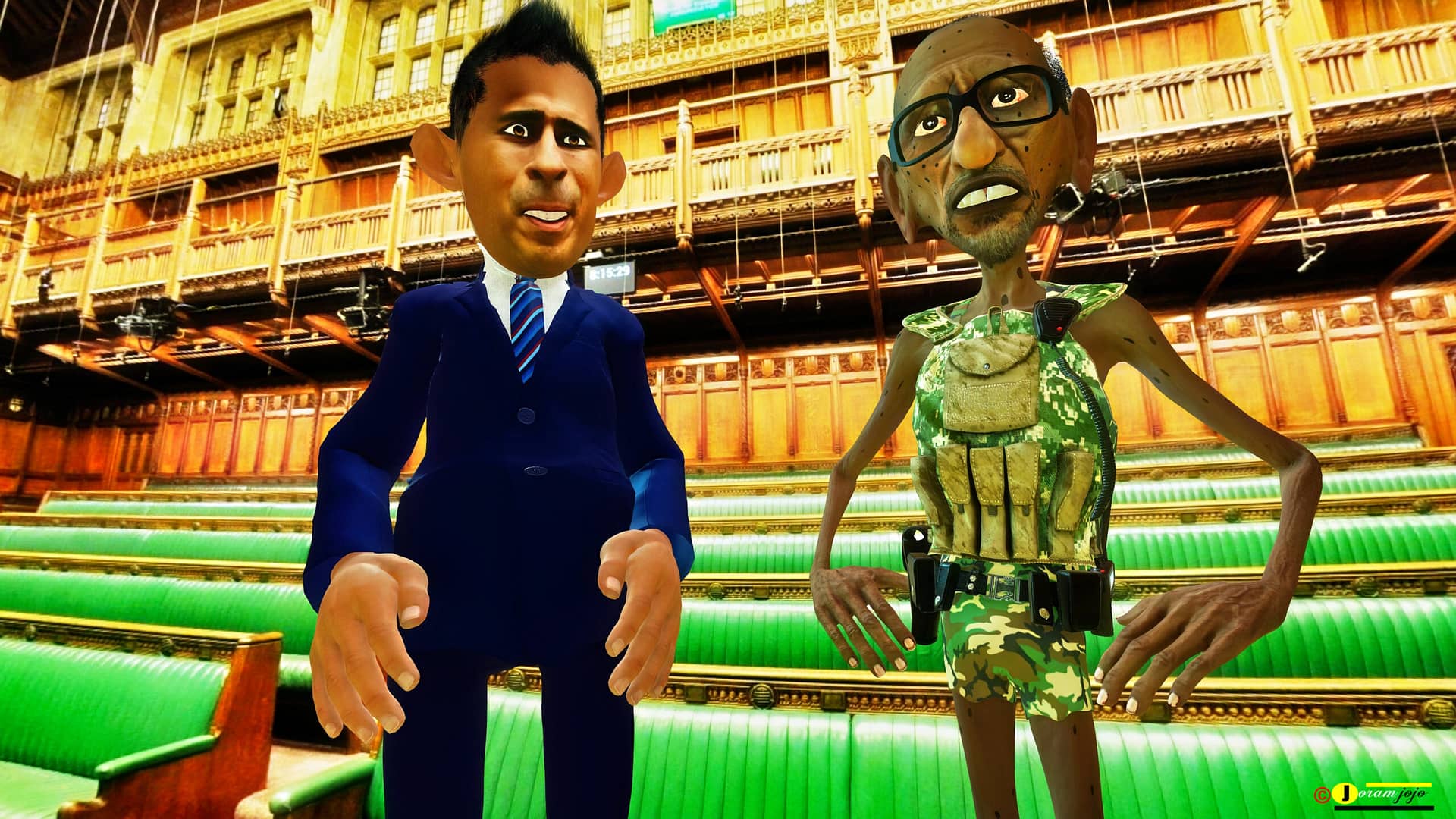Rishi Sunak’s flagship Rwanda deportation plan has suffered its first defeat at the hands of his peers.
Peers have defied the government and voted by 214 votes to 171 to delay the ratification of a treaty with the East African country – a key plank of the Prime Minister’s controversial policy. The blow came just days after the embattled prime minister pleaded with the House of Lords not to derail his plans to send refugees to Rwanda before the general election.
Labour’s Lord Goldsmith tabled a motion recommending Parliament not ratify the Rwanda treaty until ministers can prove the country is safe.
 The government agreed to the legally binding treaty in December, saying it would address concerns raised by the High Court about the possibility that asylum seekers who are deported to Rwanda could then be returned to a country where they could be at risk. But Lord Goldsmith, chair of the House of Lords commission on international treaties, said the promised protections are “not complete”.
The government agreed to the legally binding treaty in December, saying it would address concerns raised by the High Court about the possibility that asylum seekers who are deported to Rwanda could then be returned to a country where they could be at risk. But Lord Goldsmith, chair of the House of Lords commission on international treaties, said the promised protections are “not complete”.
The former Attorney General said during the debate: “In total our report identifies at least 10 sets of issues where on the basis of the Government’s evidence significant additional legal and practical steps are needed in order to implement the protections the treaty is designed to provide. The difficulty is that the Government has already presented a Bill to Parliament asking it to make a judgment that Rwanda is safe now.”
He added: “We are not saying that the treaty should never be ratified, but we are saying that parliament should have the opportunity to have a full scrutiny of the treaty and its implementation measures before it makes a judgement on whether Rwanda is safe”.
Dick Newby, Leader of the Liberal Democratic Party in the House of Lords, said: “Tonight dealt yet another blow to Rishi Sunak and his failed Rwanda plan.
“From the outset, this policy has been an utterly unworkable waste of time and money. Yet despite all the evidence to the contrary, the Conservatives are obsessed with pushing it forward. The government should now accept the reality of the situation and move on from this white elephant of a policy”.
Responding to the debate, Minister for the Interior Lord Sharpe of Epsom said: “The Rwanda partnership was set up to strengthen the UK’s efforts to tackle illegal migration, which costs the UK taxpayer money and puts lives at risk as people undertake high-risk voyages.”
He was met with jeers when he said: “This begs the question: Is the Labour Party using the House of Lords to try to defeat our plan to stop the boats?” The vote on Monday evening was the first test for Rish Sunak’s plan in the upper chamber, before a key debate on the actual Rwanda legislation begins next week.
The deal is part of the administration’s response to last year’s scathing ruling by Britain’s High Court that the administration’s Rwanda plan is illegal.
The new bilateral agreement aims to address concerns that asylum applicants sent from the UK to Rwanda may face ‘refoulment’ – being sent back to the country from where you originally fled, even though you may face torture, persecution or even death.
The Committee emphasised: “In response to the High Court’s ruling, the Administration presented the Rwanda Agreement to the House, asking it to declare Rwanda a safe state on the basis of the Agreement.
“While the contract could eventually provide the basis for such an assessment with rigorous implementation, its current provisions are imperfect. The agreement calls for many further legal and practical steps that will take time.
 A new asylum law in Rwanda
A new asylum law in Rwanda
* Addresses concerns about “refoulment
* A procedure for the submission of individual complaints to the monitoring committee
* The appointment of independent experts as advisers to the asylum first instance and appeal bodies
* Appointment of the co-presidents of the Board of Appeal
* Appointing international judges
* Training of international judges in Rwandan law and practice
* Training for Rwandan officials who deal with asylum seekers; and
* Steps to ensure sufficient numbers of trained legal advisers and interpreters.
The report, which was published last week, stressed that: “The arrangements put in place by the treaty need time to bed in, in order to demonstrate their effectiveness in practice.
“We agree with the evidence we have received that the Treaty is unlikely to change the situation in Rwanda in the short to medium term, although the Home Office has been unable to provide a clear timetable for implementation.
The second motion tabled by Lord Goldsmith states: “This House resolves, in accordance with section 20 of the Constitutional Reform and Governance Act 2010, that His Majesty’s Government should not ratify the UK-Rwanda Asylum Partnership Agreement until the safeguards it provides are fully implemented, given that Parliament is being asked to make a judgement on whether Rwanda is safe on the basis of the Agreement.”
The Bill will now go to the Lords, where it will be read in late January, with a possible third reading in mid-March.
Last week, Rajnak warned Lords not to block what she described as the “will of the people” on Rwanda policy.
Conservative peer Baroness Nicky Morgan told the BBC on Sunday: “It wasn’t a happy precedent with the last prime minister (Boris Johnson) who used the language of ‘the will of the people’.”
But Lucy Frazer, the culture secretary, told GB News: “Lords should note that this (legislation) passed through Commons by a large majority.”
With 11 Tory MPs, including former home secretary Suella Braverman, voting against the bill, it was approved by the Commons by 320 to 276.
Mr Sunak is hoping to assuage the concerns of the High Court with the approval of a new legally binding treaty with Rwanda. To reduce the chances of future flights being blocked, he has also tabled legislation asking Parliament to confirm that it considers the African nation to be a ‘safe country’.
Home Office officials say that to address the concerns raised by the Supreme Court’s findings, the treaty focuses on preventing what is known as ‘refoulment’. Refoulment occurs when those seeking asylum are removed and returned to a country where they are persecuted.
The agreement still needs to be ratified by the UK and Rwandan parliaments for it to become internationally binding. The aim of the agreement is to ensure that the country does not deport migrants and send them back to their home country or any other country after they have arrived in the UK.
It will also create a new appeals process within Rwanda’s High Court to deal with exceptional cases – for example, if someone living in the country under the scheme commits a crime – where the government decides to deport asylum seekers.
Judges from the UK, the Commonwealth and Rwanda will preside over the hearings in the appeal court. Judgments will decide whether asylum seekers remain in Rwanda or are returned to Britain.
The Rwanda Security (Asylum and Migration) Act, published on Wednesday, requires judges to consider the country ‘safe’. It overrides parts of the Human Rights Act and international law.
Those seeking asylum could still appeal against deportation based on their particular circumstances. However, they would not be able to argue that deportation to Rwanda would create a risk of refoulment.
It is also possible that a court of law could declare that the legislation is not compatible with the Human Rights Act. This, however, would not automatically stop the Act from having to operate.
Joram Jojo
- THE LIST OF CANDIDATES FOR THE 2024 RWANDA ELECTIONS - May 31, 2024
- THE RWANDA ACTIVIST INAUGURAL PODCAST - May 30, 2024
- DICTATOR PAUL KAGAME COMEDY SHOW - May 30, 2024


 A new asylum law in Rwanda
A new asylum law in Rwanda










